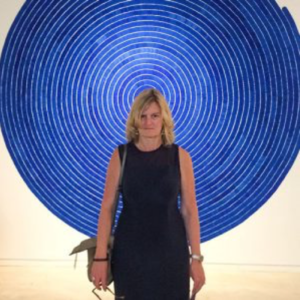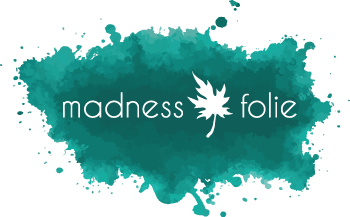Madness Canada/ folie Canada believes that Mad Studies should pay particular attention to the mechanisms of power and social justice issues. We aim to use history to understand the present and illuminate the future.
Our work draws on diverse experiences, skills and perspectives in recognizing the legacy of Mad Pride within Canadian communities. Contributors to the website include community members, academics, educators and policy makers.
We are always interested in new CONTRIBUTOR EXHIBITS and in additions to our RESOURCE section, and we particularly encourage the participation of people with lived experience. If you would like to apply to mount an exhibition on the site, please contact us at madness@yorku.ca
Meet our Board
Our Board is made up of researchers, educators and people with lived experience. The Board helps to set Madness Canada’s strategic direction.
 Megan Davies imagines a better mental health world, grounded in personhood, kindness, and the collective, and works to enact these values on the pages of Madness Canada. An Emerita Professor from York University, she uses activist history practices in her work on madness, COVID, aging, caregiving, and everyday health. Megan is an historian, writer, felter, swimmer, gardener and caregiver.
Megan Davies imagines a better mental health world, grounded in personhood, kindness, and the collective, and works to enact these values on the pages of Madness Canada. An Emerita Professor from York University, she uses activist history practices in her work on madness, COVID, aging, caregiving, and everyday health. Megan is an historian, writer, felter, swimmer, gardener and caregiver.
 Rachel Galea cares about how health care impacts women with mental health diagnoses, especially borderline personality disorder. She aims to develop innovative, equitable health services for people who live with stigmatizing conditions. An RN, Rachel is a full-time faculty member at the Trent/Fleming School of Nursing and a PhD student in the Interdisciplinary Social Research program at Trent University.
Rachel Galea cares about how health care impacts women with mental health diagnoses, especially borderline personality disorder. She aims to develop innovative, equitable health services for people who live with stigmatizing conditions. An RN, Rachel is a full-time faculty member at the Trent/Fleming School of Nursing and a PhD student in the Interdisciplinary Social Research program at Trent University.
 Peter Martin brings to our board legal expertise from a career in the fields of refugee, aboriginal, and anti-terrorism law. He left legal practice to focus on his mental health and experienced a period of homelessness. After serving on the board of PARC in Toronto, Peter moved to his current position as the Housing Support Manager for the Toronto Alliance to End Homelessness.
Peter Martin brings to our board legal expertise from a career in the fields of refugee, aboriginal, and anti-terrorism law. He left legal practice to focus on his mental health and experienced a period of homelessness. After serving on the board of PARC in Toronto, Peter moved to his current position as the Housing Support Manager for the Toronto Alliance to End Homelessness.
 Marina Morrow works with community-based organizations, health care practitioners, advocates, and policy decision makers to influence the development of non-coercive, user-directed mental health supports. Inaugural Director of York University’s Mad Studies Hub, her recent project is Realizing Human Rights and Social Justice in Mental Health. Marina was an expert witness in the 2025 Charter challenge to the BC Mental Health Act.
Marina Morrow works with community-based organizations, health care practitioners, advocates, and policy decision makers to influence the development of non-coercive, user-directed mental health supports. Inaugural Director of York University’s Mad Studies Hub, her recent project is Realizing Human Rights and Social Justice in Mental Health. Marina was an expert witness in the 2025 Charter challenge to the BC Mental Health Act.
 Essya M. Nabbali has a deep commitment to Mad activism and its ethos: to recentre compassion and redefine living together. A community-based, English/French bilingual researcher, educator, and data storyteller, she has spent much of the last two decades exploring the impacts and implications of policies, genders, and inter/national situatedness, including structural poverty, on health, care, and humanity.
Essya M. Nabbali has a deep commitment to Mad activism and its ethos: to recentre compassion and redefine living together. A community-based, English/French bilingual researcher, educator, and data storyteller, she has spent much of the last two decades exploring the impacts and implications of policies, genders, and inter/national situatedness, including structural poverty, on health, care, and humanity.
 Kira A. Smith believes in the importance of history and memory as part of community building and dreamwork for a better future. At Madness Canada, she plans to use her skills as a public historian to give back to the mad community through archiving and interpreting mad history. Kira’s PhD dissertation and recent research has focused on the diverse lived experiences of children in Canadian asylums.
Kira A. Smith believes in the importance of history and memory as part of community building and dreamwork for a better future. At Madness Canada, she plans to use her skills as a public historian to give back to the mad community through archiving and interpreting mad history. Kira’s PhD dissertation and recent research has focused on the diverse lived experiences of children in Canadian asylums.
 Allison Tarr embraces care that is brave, relational and unafraid of complexity. She is looking forward to working collaboratively at Madness Canada to support accessible, justice-aligned spaces that honour lived experience, and foster critical engagement with Canada’s mental health legacies. An artist, a writer, and counselor-in-training, Allison carries a fondness for flightless birds.
Allison Tarr embraces care that is brave, relational and unafraid of complexity. She is looking forward to working collaboratively at Madness Canada to support accessible, justice-aligned spaces that honour lived experience, and foster critical engagement with Canada’s mental health legacies. An artist, a writer, and counselor-in-training, Allison carries a fondness for flightless birds.
 Tim Tripp is our bridge to FOCA (Friends of the CAMH Archives), Madness Canada’s benefactor organization. He is excited by the energy, ideas, and reach of Mad Can, and by the fresh perspectives of our new fall 2025 board members. Trained in Library Sciences and Information Studies, Tim’s career has been on the cutting edge of new data technologies at CAMH and Toronto’s University Health Network.
Tim Tripp is our bridge to FOCA (Friends of the CAMH Archives), Madness Canada’s benefactor organization. He is excited by the energy, ideas, and reach of Mad Can, and by the fresh perspectives of our new fall 2025 board members. Trained in Library Sciences and Information Studies, Tim’s career has been on the cutting edge of new data technologies at CAMH and Toronto’s University Health Network.
